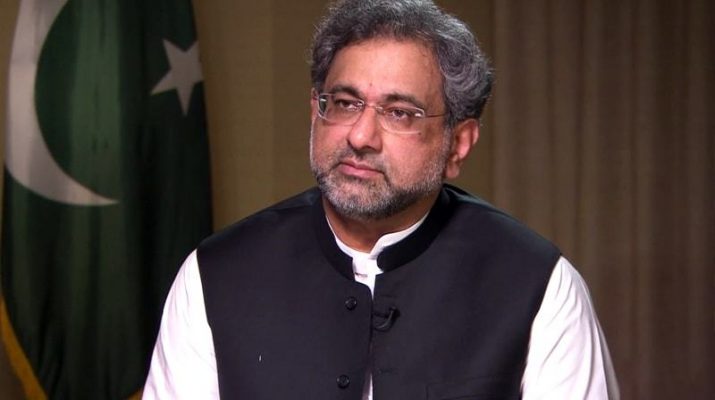ISLAMABAD: Minister of State for Information, Broadcasting, National History and Literary Heritage Ms Aurangzeb speaking in the National Assembly Tuesday said that all constitutional institutions must function within constitutional limits in a dignified manner without any interference.
The
minister said that the Constitution of Pakistan had three pillars and the parliament was one
of them, adding that all the institutions owed their existence to the Constitution, which was choreographed by the parliament.
She said that the debate initiated by Prime Minister Shahid Khaqan Abbasi in the National Assembly yesterday had strengthened Pakistan legally and constitutionally and even the opposition leader had
observed that this debate should have been unleashed long ago.
Marriyum said that the judiciary commanded respect because it was custodian
of the law and the Constitution and a protector and guarantor
of the dignity and honour
of the citizens. She said that the prestige and honour
of the court was not vitiated by uttering of one sentence by somebody.
She said that giving the epithet of godfather and Sicilian mafia to an elected prime
minister was a negation
of the mandate
of the people. An elected prime
minister was sent home with one stoke
of the pen but a person who consigned the Constitution to the waste paper basket was not arraigned in the court, she added.
Marriyum said that Nawaz Sharif was not only a name but an ideology and a passion that had penetrated in the hearts
of the masses from Peshawar to Karachi. She said that Nawaz Sharif represented an ideology for the sanctity of vote and voice
of the people which could not be suppressed. She reiterated that the flag
of the sanctity of vote would keep flying against all odds.
The
minister
observed that they first sent the prime
minister home and were now trying to ferret out incriminating evidence. She said that Nawaz had raised voice for the sanctity of vote and connected the people of Pakistan with each other. He was a road-map for the revival
of the public opinion and that was the reason he was followed by millions of people where ever he went and were raising slogans of non-acceptance
of the verdict for his disqualification, she added.
She said that Nawaz had morphed into voice
of the people which should be heard attentively. She said that the former prime
minister had launched a movement for the restoration
of the judiciary and now was running a campaign for restoration of justice.
The
minister said that everyone, including the state institutions, had committed mistakes, adding that it should also be accepted that the registration of a case for the theft of buffalo was a mistake; expressing elation over the execution of Zulfikar Ali Bhutto was also a mistake; taking oath from a dictator under the doctrine of necessity, PCO and LFO were also a mistake and a sin. She said that everybody knew the path that the country had traversed during the last 70 years and it was the right moment to ponder whether the next 70 years were also to be spent mourning over the past mistakes and throwing the Constitution into the waste paper basket? She
observed that there was an imperative need to use their collective wisdom to set a right direction for the country.
She said that democracy was not the name of a product or the by-election in Lodhran, but it was a process and a political behavior. She said that democracy entailed freedom of expression and the institutions showing subservience to the law and Constitution.
The
minister said that the parliament was the true face
of the people and its prestige and honour would be upheld only when the one who attacked and sent curses on it was no more its member.
Marriyum said t
hat Zulfikar Ali Bhutto in his book had written that those who were trying to lower him in the grave were thinking that they would finish him but he would rule the country from the grave. She said that it was their right to criticize the court decision. They hurled a barrage of allegations at an elected prime
minister on the basis of ‘Iqama’ and disqualified him. Nawaz Sharif accepted the verdict and immediately implemented it by leaving the post
of the prime
minister, she added.
The
minister said that the time had come to dispense with the tradition of sending the elected prime
ministers home.
She said that it was the appropriate moment to promote the thinking of strengthening and protecting the case
of the parliament instead of mourning over the past mistakes. She said that if similar verdicts were repeated then for the next 70 years they would be presenting their case in the same way without any gain.
The
minister
observed that the time had also come to introduce the syllabus for respect
of the state institutions in the educational institutions. She said that respect for state institutions was respect for the Constitution which conferred dignity on all the institutions and therefore all the institutions must develop the thinking of paying respect to the Constitution.
She said that every
body would have to play a role by rising above the individual and party considerations for establishing the ascendency
of the parliament. She said that the insult
of the parliament by any state institution was tantamount to insult
of the people of Pakistan.
